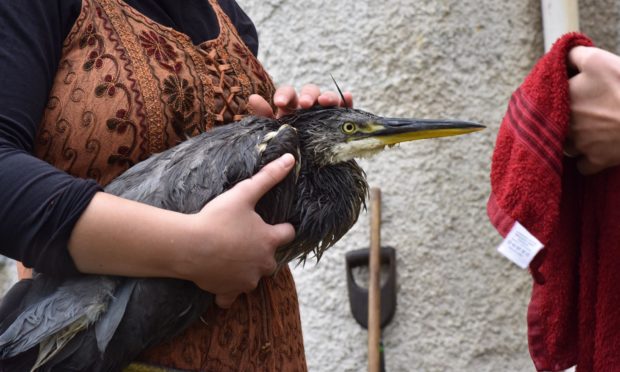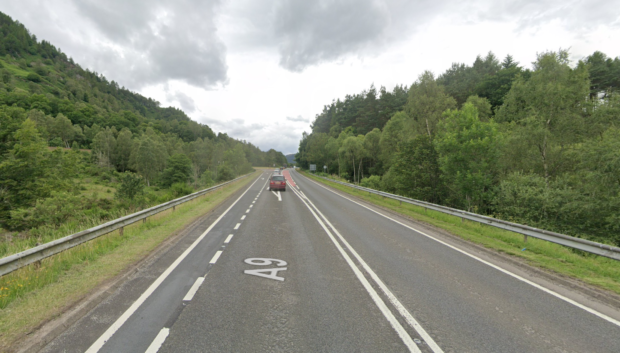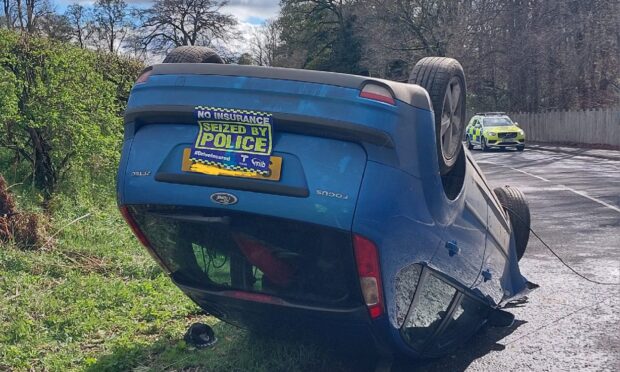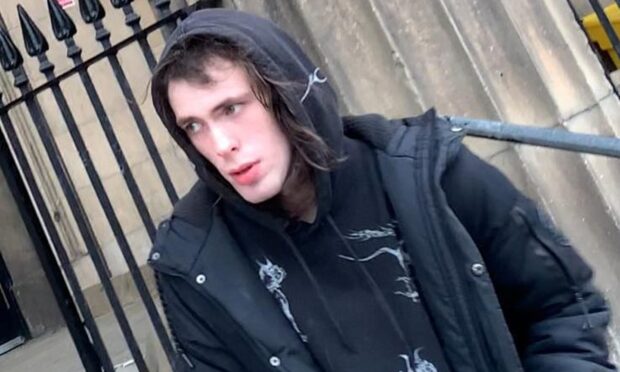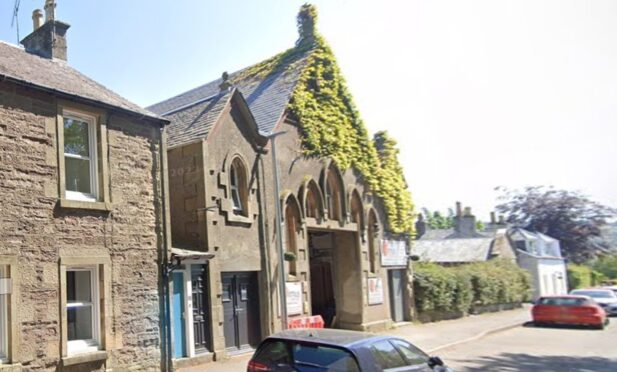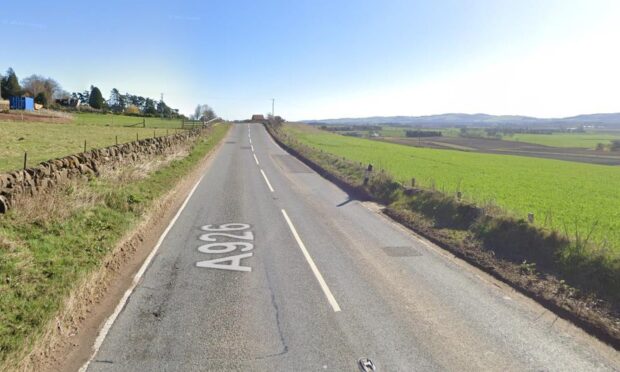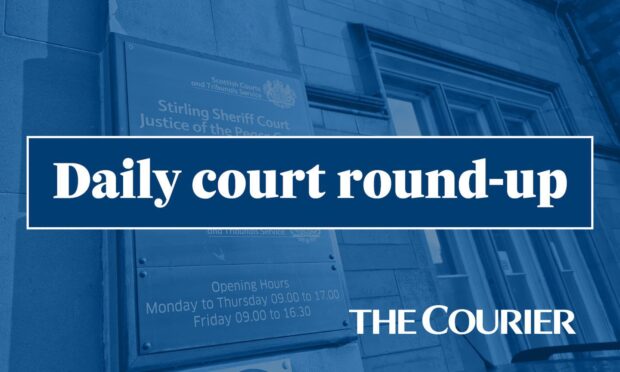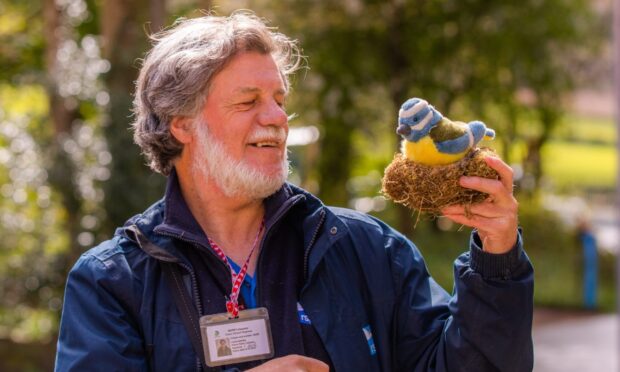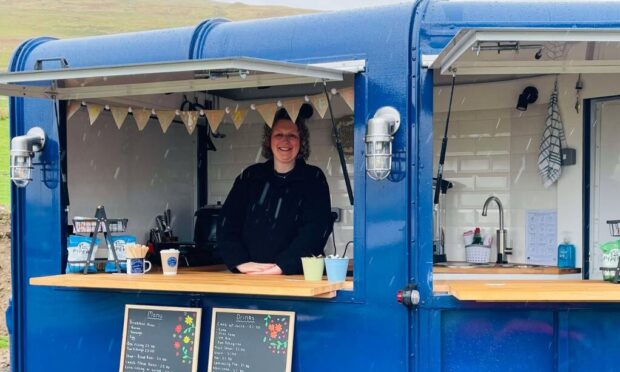“Dirty campers” and wildlife rescuers have been criticised after a baby heron found covered in chip fat in Highland Perthshire had to be put down.
On July 5, the young bird was handed over to SSPCA after being found impaired by the sludge on the southern shore of Loch Rannoch.
Enya James found the bird near her home and could see it struggling to move.
Upon closer inspection, Enya found the fledgling was soaked in chip grease.
Enya said the fat must have been brought to the lochside by dirty campers, who have been tormenting her family’s estate for weeks.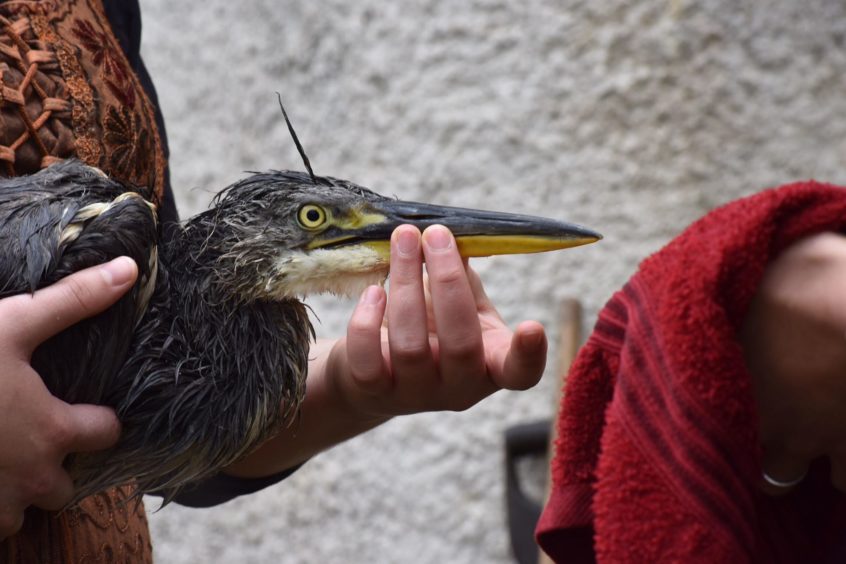
Enya called the Scottish SPCA and arranged to meet the charity in Pitlochry with the bird.
Believing it only needed a good scrub, Enya was heartbroken to hear the decision had been made to put the bird down before it had been safely transported to the organisation’s Clackmannanshire base.
She said: “I could see the bird in the grass so I went over to get some photographs.
“There was oil all over its face and body. It needed a good wash as it was covered in gunk.
“The SSPCA team said it was supposedly chip fat. There’s no chip shops nearby so campers must have brought it with them.
“We’ve had so many problems with campers this summer. They’ve left human waste and rubbish. Something needs to be done.
“It was such a sweet bird. It sat and looked out the window all the way to Pitlochry, not frightened at all.”
The bird was picked up and placed in a cardboard box to be transported to Fishcross and SSPCA officers say the creature would have made it, had it not fallen foul of an allergic reaction.
Enya has lodged an official complaint about the size of the box in which the bird was transported and how crowded the van was.
SSPCA say euthanasia was “most humane” option
The SSPCA say their officer checked on the bird during the journey and decided euthanising it was the only humane option.
SSPCA Chief inspector Alison Simpson said: “We were going to transport the bird to our National Wildlife Centre in Fishcross to clean, and hopefully rehabilitate, the young heron.
“When the animal rescue officer stopped during the journey to check on the animals in their care, sadly the heron’s condition had rapidly deteriorated. The bird was swollen and had begun fitting, suggesting perhaps the young bird had ingested some of the oil.
“The animal rescue officer then took the difficult, but correct, decision to end the animal’s suffering and put the bird to sleep. This is always a last resort for our team and only carried out when an animal cannot be saved.
“[Enya] felt that the back of the animal rescue officer’s van was too crowded. Our vans are very busy at this time of year due to the high number of wildlife incidents we attend during the summer months. Our vans always operate at a safe capacity.
“[Enya] was also concerned about the size of the box the heron was placed in. I can confirm that the bird was placed in the correct size of box. Although these boxes may appear restrictive, birds need to be safely contained during transport to prevent them flapping and accidentally injuring their wings.
“We’re sorry that this incident didn’t have a happier outcome but we had to do what was best for the animal to prevent any further suffering.”
